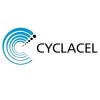
Romidepsin in Treating Patients With Lymphoma, Chronic Lymphocytic Leukemia, or Solid Tumors With...
GliomaHematopoietic and Lymphoid Cell Neoplasm48 moreThis phase I trial studies the side effects and best dose of romidepsin in treating patients with lymphoma, chronic lymphocytic leukemia, or solid tumors with liver dysfunction. Romidepsin may stop the growth of cancer cells by entering the cancer cells and by blocking the activity of proteins that are important for the cancer's growth and survival.

Clofarabine and Melphalan Before Donor Stem Cell Transplant in Treating Patients With Myelodysplasia,...
Adult Acute Lymphoblastic Leukemia in RemissionAcute Myeloid Leukemia Arising From Previous Myelodysplastic Syndrome5 moreThis phase II trial studies how well clofarabine and melphalan before a donor stem cell transplant works in treating patients with a decrease in or disappearance of signs and symptoms of myelodysplasia or acute leukemia (disease is in remission), or chronic myelomonocytic leukemia. Giving chemotherapy, such as clofarabine and melphalan, before a donor stem cell transplant helps stop the growth of cancer cells. It may also stop the patient's immune system from rejecting the donor's stem cells. When the healthy stem cells from a donor are infused into a patient they may help the patient's bone marrow make stem cells, red blood cells, white blood cells, and platelets. Giving clofarabine and melphalan before transplant may help prevent the cancer from coming back after transplant, and they may cause fewer side effects than standard treatment.

Serial Measurements of Molecular and Architectural Responses to Therapy (SMMART) PRIME Trial
Accelerated Phase Chronic Myelogenous LeukemiaBCR-ABL1 Positive55 moreThis phase Ib trial determines if samples from a patient's cancer can be tested to find combinations of drugs that provide clinical benefit for the kind of cancer the patient has. This study is also being done to understand why cancer drugs can stop working and how different cancers in different people respond to different types of therapy.

A Pivotal Study of HQP1351 in Patients of Chronic Myeloid Leukemia in Accelerated Phase With T315I...
Chronic Myeloid Leukemia - Accelerated PhaseThe purpose of this study is to evaluate the efficacy of HQP1351 in patients with chronic myeloid leukemia in accelerated phase (CML-AP) harboring T315I mutation. The efficacy of HQP1351 was determined by evaluating the subjects' major hematologic response (MaHR).

CYC065 CDK Inhibitor and Venetoclax Study in Relapsed/Refractory CLL
Relapsed or Refractory Chronic Lymphocytic LeukemiaA Phase I Combination Study of CYC065 and Venetoclax for Relapsed or Refractory Chronic Lymphocytic Leukemia (CLL)

Ruxolitinib for the Treatment of Chronic Myelomonocytic Leukemia (CMML): A Phase 2 Expansion
Chronic Myelomonocytic LeukemiaLeukemiaThis study is to find out if treating Chronic Myelomonocytic Leukemia (CMML) with a study drug (ruxolitinib) can improve outcomes of patients with CMML.

Randomized Evaluation of Radotinib Versus Imatinib in Phase III Study for Efficacy With Chinese...
Chronic Myeloid LeukemiaChronic PhaseThis is a Phase III, multi-center, open-label, parallel, 2-arm, randomized study to evaluate the efficacy and safety of radotinib 300 mg Bis In Die(BID) versus imatinib 400 mg Quaque Die(QD). This study will be conducted in Chinese patients with newly diagnosed Ph+ Chronic Myelogenous Leukemia(CML)-Chronic Phase(CP) who are previously untreated for Chronic Myelogenous Leukemia(CML).

Clinical Study of CWP232291 in Acute Myeloid Leukemia Patients
Acute Myeloid LeukemiaThis is a multicenter (S. Korea/US), Phase Ib, open-label, dose-finding study to assess safety, PK, PD, and preliminary efficacy of CWP232291 administered in combination with ara-C in subjects with relapsed or refractory AML. The primary objectives in phase 2a is to assess the efficacy of CWP232291 administered in combination with cytarabine (response rate complete remission [RR-CR]/complete remission with incomplete blood count recovery [CRi]/partial remission [PR]).

Azacitidine With or Without Nivolumab or Midostaurin, or Decitabine and Cytarabine Alone in Treating...
Acute Myeloid LeukemiaMyelodysplastic Syndrome1 moreThis randomized phase II/III trial studies how well azacitidine with or without nivolumab or midostaurin, or decitabine and cytarabine alone work in treating older patients with newly diagnosed acute myeloid leukemia or high-risk myelodysplastic syndrome. Drugs used in chemotherapy, such as azacitidine, decitabine, and cytarabine, work in different ways to stop the growth of cancer cells, either by killing the cells, by stopping them from dividing, or by stopping them from spreading. Immunotherapy with monoclonal antibodies, such as nivolumab, may help the body's immune system attack the cancer, and may interfere with the ability of tumor cells to grow and spread. Midostaurin may stop the growth of cancer cells by blocking some of the enzymes needed for cell growth. Giving azacitidine with or without nivolumab or midostaurin, or decitabine and cytarabine alone may kill more cancer cells.

Geriatric Assessment & Genetic Profiling to Personalize Therapy in Older Adults With Acute Myeloid...
Adult Acute Myeloid LeukemiaSecondary Acute Myeloid Leukemia1 moreThis phase II trial of the impact of clinicogenetic risk-stratified management on outcomes of acute myeloid leukemia in older patients is to determine the rate of complete remission and mortality at 90 days in the entire cohort of older patients (≥60 years) with newly diagnosed acute myeloid leukemia, who receive clinicogenetic risk-stratified therapy allocation. Subjects will receive standard of care intensive or low-intensity induction based on cytogenetic and geriatric assessment-based risk stratification. Subjects will be evaluated for disease status, survival, quality of life and neurocognitive status for 90 days and then followed for a total of 2 years for survival data.
